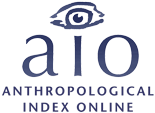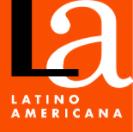Digital Materiality and political action: the letters to political prisoners and their circulation in social media in Brazil and Catalonia
Keywords:
digital materiality, digital ethnography, material culture, prison, political actionAbstract
This article suggests an incursion into the concept of digital materiality in order to reconfigure the theoretical and methodological perspective in the study of social practices that are part of the social media activity. Drawing on the fieldwork carried out in two letters writing campaigns to “political prisoners" in Brazil and Catalonia, the analysis focuses on the letters and their circulation as the axis of the activist campaigns, expanding the concept of digital ethnography to include fieldwork that takes place in social media as well as in villages and squares. This approach decentres the digital and its social impact as the focus of inquiry to examine the role of social media as part of a wider political action.
References
Ardévol, Elisenda & Gómez-Cruz, Edgar (2012). “Digital ethnography and media practices”, The International Encyclopedia of Media Studies, pp. 498-518.
Alkorta, Eider y Leonisio, Rafael (2019). “No solo identidad: claves del independentismo en Euskadi”, Revista Española de Investigaciones Sociológicas, Nº165, pp. 25-44.
Barceló, Joan (2018). “Batons and ballots: The effectiveness of state violence in fighting against Catalan separatism”, Research & Politics, Vol. 5 Nº 2.
Boccagni, Paolo; Lafleur, Jean-Michel; Levitt, Peggy (2016). “Transnational Politics as Cultural Circulation: Toward a Conceptual Understanding of Migrant Political Participation on the Move”, Mobilities, Vol. 11, N°, 3, pp. 444–463.
Castells, Manuel (2008). “Comunicación, poder y contrapoder en la sociedad red (II). Los nuevos espacios de la comunicación”, Telos, N°75, pp. 11-23.
Chartier, Roger (2003). Formas e sentido; Cultura escrita: entre distinção e apropriação. Campinas, Mercado de Letras.
De Castro Gomes, Ângela (org.) (2004). Escrita de si, escrita da história. Rio de Janeiro, FGV.
Di Prospero, Carolina (2017). “Antropología de lo digital: Construcción del campo etnográfico en co-presencia”, Virtualis, Vol. 8, Nº 15.
Edwards, Elizabeth (2009). “Las prácticas sociales como una teoría de la fotografía”, en Vicente, Pedro (ed.): Instantáneas de la teoría de la fotografía. Tarragona, Arola.
Eisenlohr, Patrick (2011). “Introduction: What is a medium? Theologies, technologies and aspirations”, Social Anthropology, Vol. 19, Nº1, pp. 1-5.
Foucault, Michel (1992). “A escrita de si”, en: O que é um autor? Lisboa, Pasagens.Gell, Alfred (1998). Art and agency: an anthropological theory. Oxford, Oxford University Press.
Halvaksz, Jamon (2008). "Photographing Spirits: Biangai Photography, Ancestors, and the Environment in Morobe Province, Papua New Guinea." Visual Anthropology núm. 21 vol.4; pp. 310-326.
Heymann, Luciana (1999). “Quem não tem padrinho morre pagão: fragmentos de um discurso sobre poder”, Revista Estudos Históricos, FGV, Vol. 13, Nº 24, pp. 325-350.
Hine, Christine (2004). Etnografia virtual. Barcelona, UOC.
Impey, Michael (1998). “Cartas desde la prisión de Julián Besteiro y Miguel Hernández: tradición epistolar y experiencia universal”, en Actas del XII Congreso de la Asociación Internacional de Hispanistas, 21-26 de agosto de 1995, Birmingham, pp. 137-144.
Liebling, Alison & Maruna, Shadd (eds.) (2005). The effects of imprisonment. Routledge.
Martínez, María Luz Congosto & Aragón, Pablo (2012). “Twitter, del sondeo a la sonda: nuevos canales de opinión, nuevos métodos de análisis”. Más poder local, N° 12, pp. 50-56.
Meyers, Birgit (2012). “Mediation and immediacy: sensational forms, semiotic ideologies and the question of the medium”, Social Anthropology, Vol.19 Nº 1, pp. 23-39.
Miller, Daniel (1998). Material Culture: the way some things matter. Chicago,University of Chicago Press.
Parikka, Jussi (2015). A geology of media. (Vol. 46) Minneapolis, University of Minnesota Press.
Pink, Sarah., Ardèvol, Elisenda & Lanzeni, Dédora (2016). “Digital materiality”, en Digital Materialities: Design and Anthropology. London, Bloomsbury Academic.
Poblet, Marta (2018). “Distributed, privacy-enhancing technologies in the 2017 Catalan referendum on independence: New tactics and models of participatory democracy”, First Monday, Vol. 23, Nº12.
Postill John & Pink, Sarah (2012). “Social media ethnography: The digital researcher in a messy web”, Media International Australia, Vol. 145, Nº1, pp. 123-134.
Postill, John (2018). The Rise of Nerd Politics: Digital Activism and Political Change. London, Pluto Press.
Rovira, Guiomar (2017). Activismo en red y multitudes conectadas; Comunicación y acción en la era de Internet. Barcelona, Icaria; Antrazyt.
Stolcke, Verena (2008). Ressenyes. Lectora: revista de dones i textualitat, N°14, pp. 319-324.
Suchman, Lucy (2005). Affiliative objects. Organization, Vol. 12, Nº3, pp. 379-399.
Tin, Emerson (2005). Cartas e literatura: reflexões sobre pesquisa do gênero epistolar. Documento electrónico: http://www.unicamp.br/iel/monteirolobato/outros/Emerson02.pdf
Treré, Emiliano (2018). Hybrid Media Activism: Ecologies, Imaginaries, Algorithms, en Routledge Studies in Radical History and Politics. Oxon, Taylor & Francis Group.
























